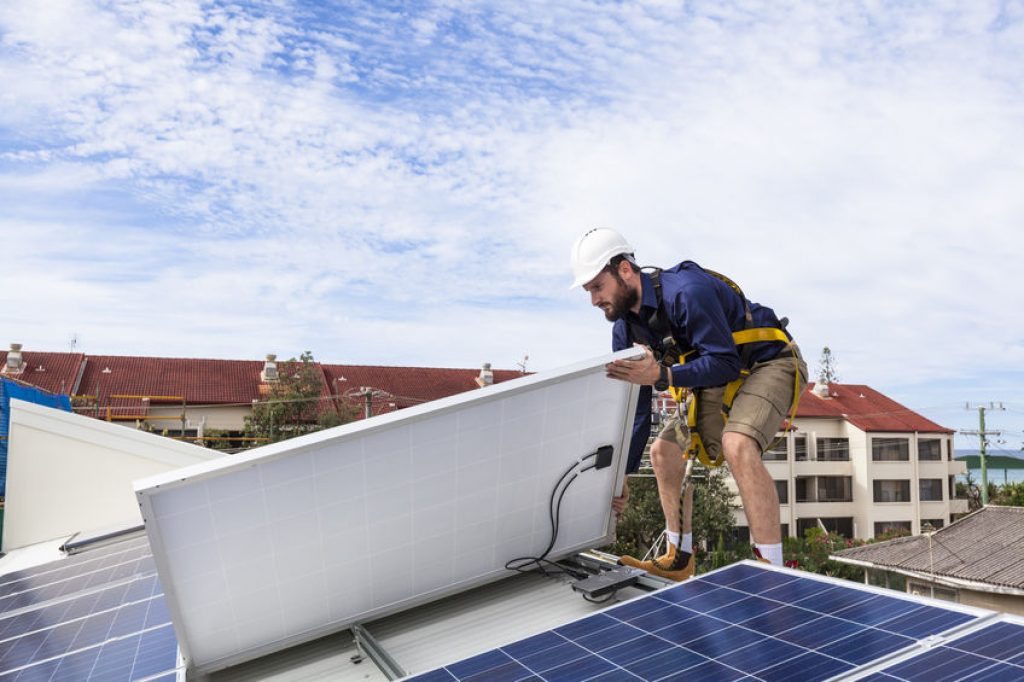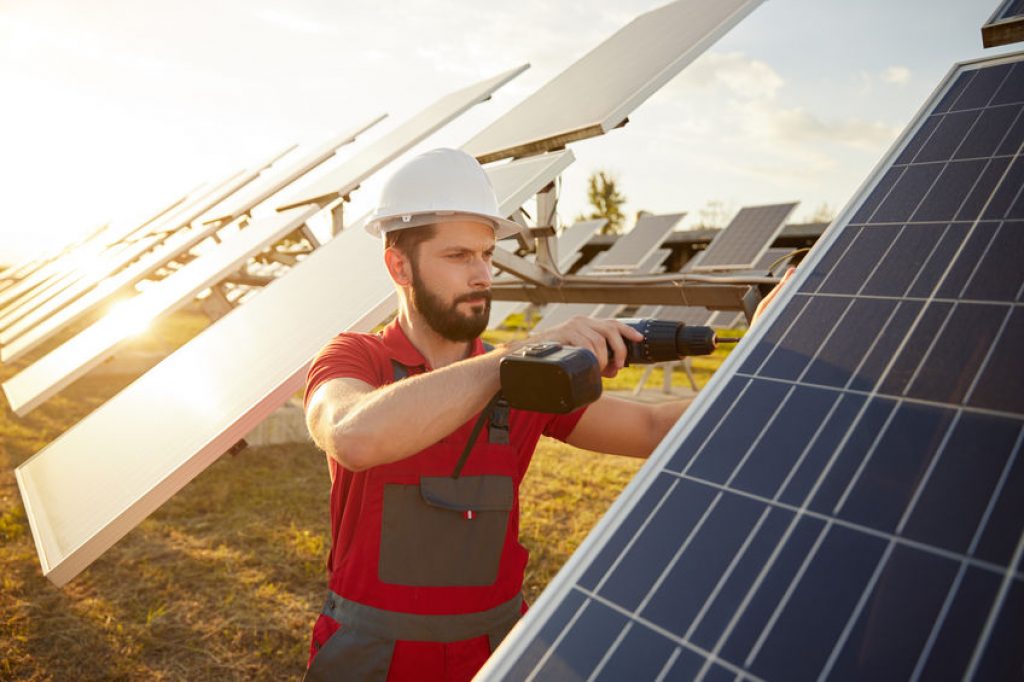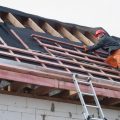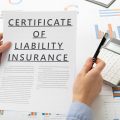Solar Panel Contractor Insurance – Solar Panel Installation Insurance.
Solar panel contractors, recognizing the burgeoning popularity in the construction and home upgrade industries, see many opportunities to start and grow profitable business operations. Like all commercial businesses, solar panel contractor insurance is essential to protect the business against risks. Solar panel installation is a high-risk activity by its very nature, so taking out full solar panel contractor insurance for every activity and asset must be one of the owner’s highest priorities.
Need
Solar Panel Contractor Insurance ?
Get Your Free Quote

In our following article, we will discuss which insurance types, including solar panel installation insurance, a solar panel contractor should be using to protect his business. We will also provide some guidance on what levels of insurance you should be looking for, and what they typically can cost.
What are solar panels used for and what is a solar panel contractor?
Solar panel contractors are businesses involved in design and installation of solar panel solutions for buildings, homes and offices.
Solar panels are becoming more and more popular because they are a “green” choice, and can also save their owners a lot of money by reducing electricity bills.
Here are a few interesting facts, especially if you are thinking of going into the business of solar panel contracting:
- during 2020, a 43% jump in total installed solar capacity over the previous year was reported
- total solar installations are expected to quadruple from current levels over the next 8-10 years
- in the final quarter of 2020, more than the total capacity added than in all of 2015
- one gigawatt of solar power feeds about 200,000 homes
- at the end of 2020, USA had around 100 GW of total solar capacity installed, enough to power more than 18 million homes
- the states with the highest rate of installations were California, Texas, Florida, Virginia and North Carolina.
There are tremendous opportunities for small businesses to take part in this booming sector, mostly acting as:
Small Business General Liability Protection:
Get Your Free Quote
- suppliers of solar panels
- solar panel contractors who work in partnership with large construction companies doing the design and installation of solar panels in office buildings, factories, farms, and housing developments
- solar panel installers and repairers for single clients.
Many people have already seen the potential of this growing industry and decided to become solar panel contractors, or solar panel installers, but still, the rate of growth in installations is leaving plenty of opportunities for new players to start up their own businesses and immediately start to see great revenue and growth for themselves..
More information about how the US government is encouraging the switch to solar power can be found here:
Types of Solar Panel Contractor Services
To provide a clearer understanding of the diverse services offered by solar panel contractors, we have compiled a table below. This table outlines each service type alongside a brief description, offering a concise overview for individuals and businesses considering the adoption of solar energy solutions. Whether you’re new to solar power or looking to expand your existing system, this table serves as a quick reference to the comprehensive range of services available to meet your solar energy needs.
| Service Type | Description |
|---|---|
| Consultation and Design | Assessing energy needs and designing a tailored solar power system. |
| Installation | Physical setup of solar panels and integration with building’s power supply. |
| Maintenance and Repairs | Regular upkeep and fixing of system components for optimal performance. |
| Monitoring and Optimization | Tracking system performance and suggesting improvements. |
| Upgrades and Expansion | Enhancing or enlarging existing solar power systems. |
| Battery Storage Integration | Adding battery systems for energy storage. |
| Financing and Incentives Navigation | Assisting with applications for financial and incentive programs. |
| Permitting and Legal Compliance | Managing permits and ensuring regulatory compliance. |
| Energy Efficiency Consulting | Advising on overall energy efficiency improvements. |
Solar Panel Contractor Risks
Solar panel contractors encounter a diverse set of risks throughout the lifecycle of a solar project. These risks can be categorized into physical, financial, legal, and operational. Physical risks include accidents and injuries on the job site, along with damage to property or the solar panels themselves. Financial risks stem from fluctuating market prices, investment returns, and potential cost overruns. Legal risks involve compliance with local, state, and federal regulations, including permits, warranties, and contracts. Operational risks cover the challenges in project management, technology integration, and system performance.
| Risk Category | Specific Risk | Description |
|---|---|---|
| Physical | Workplace Accidents | Injuries to workers or third parties on-site, including falls, electrical shocks, and equipment-related incidents. |
| Physical | Property and Equipment Damage | Damage to the solar panels, mounting systems, or client property during installation or maintenance. |
| Financial | Market Price Fluctuations | Changes in the cost of solar panels or components that can affect project profitability. |
| Financial | Investment and Cost Overruns | Budget miscalculations or unforeseen expenses leading to financial strain. |
| Legal | Regulatory Compliance | Failing to adhere to building codes, electrical standards, or environmental regulations. |
| Legal | Contractual Liabilities | Disputes over warranty claims, service agreements, or project specifications. |
| Operational | Project Management Challenges | Delays, miscommunications, or inefficiencies in managing project timelines and resources. |
| Operational | Technology Integration Issues | Problems integrating solar systems with existing electrical infrastructure or new technologies. |
| Operational | System Performance Failures | Underperformance of installed solar systems relative to expected output, possibly due to design flaws or component failures. |
Solar Panel Contractor Insurance is designed to mitigate the diverse risks associated with solar panel contracting, offering protection against workplace accidents, property damage, legal liabilities, financial uncertainties, and operational challenges.
What types of insurance is required for solar panel contractors and installers?
All business operations need the most basic types of insurance to cover general liability, professional liability, equipment, commercial vehicles and workers compensations.
We outline what each one of these means and their cost below.
Due to the special characteristics of this work, which does create some extra risks, we also detail what particular extra insurance is needed, as well as some of the special clauses and levels of insurance that should be included inside the four standard insurance types.
What is general liability insurance for solar panel contractors?
General liability insurance is the primary type of insurance for any kind of business.
It covers you for financial losses caused to third-parties by bodily injury or property damage, as well as any related medical or legal expenses, and some companies offer cover for ancillary covers such as slander and libel.
Accidents can occur at any time during conducting your business activities.
There is a legal duty that you will conduct your work in a manner that doesn’t endanger people in the immediate work area, as well as to protect the property itself against damages resulting from your work.
When you are working on some homeowner’s property, there is a risk of damaging the roof, floors, driveway, or any other area of the house.
As well, anyone in the house or any third-party anywhere near where you are working, could injure themselves on, or be hurt by, your equipment.
If the person injured, or the owner of the house damaged, claims that you were at fault, they may sue you for cost of replacement or repair, for any medical expenses, and for other things like “pain and distress”.
Remember that people are becoming increasingly litigious and even the friendliest customer can turn into a very angry opponent in court.
General liability insurance for solar panel installers and contractors provides a high level of protections against any such legal outcome.
The policy takes over all aspects of the case, provides the necessary legal defence, and up to the limits you have selected, will cover 100% of the final judgement or settlement.
We talk more about the usual levels of insurance you should be thinking of a bit later in this article.
You can read more about general liability insurance in your state here.
Must I have excess liability insurance for my solar panel contractor company?
When the usual protection provided by ordinary general liability insurance is not enough for your own risk level, there is the possibility of an excess liability policy.
To protect yourself from losing everything in expensive lawsuits, you can add excess liability to your insurance policy and get higher coverage.
You should talk to an experienced insurance agent, insurance broker or company agent to make sure that you are really in need of this exceptional cover.
Do I need professional liability insurance for a solar panel contractors business?
Professional liability insurance, also known as Errors & Omissions, covers business from financial losses that are the result of allegations from customers of some malpractice, errors, and negligence in the conduct of your business.
Apart from allegations that the work itself that you performed was not proper and professional, you can also be sued for ancillary costs.
One example could be where you had agreed to complete a home installation by a specific date, but failed to meet that commitment.
If the owner had to delay some expensive event, like a wedding or graduation party that had been planned for the date of the expected completion, you could be sued for the entire consequential cost, plus “emotional and reputational damage”, which can become a claim for tens of thousands of dollars, plus tremendous legal fees both for your defense and for the other side if you end up losing the case.
Must a solar panel contractor have a workers compensation insurance policy?
In most states, this type of insurance is legally required for any business where the company employs one or more workers.
It’s important to know that the term “employee” is not restricted to full-time workers, but includes part-timers, temporary, casual workers and subcontractors.
Workers compensation insurance protects such employees from any injuries or illnesses that are a result of work.
The insurance covers the employee’s wages for the time while he is off-work sick or injured, as well as his medical expenses.
It can also protect the employer from lawsuits in connection with an unsafe work environment as long as he is following OSHA requirements.
To be eligible to get any payment from workers comp insurance, the injury or illness must be directly related to work.
In the solar panel installation or contracting business, working at heights with dangerous equipment is a necessary part of the job. This is why, to protect yourself and your employees, you must have workers’ compensation insurance.
Notes:
- Some states are giving discounts for drug-free or alcohol-free work environments.
- In some states, there are monopolies on workers comp insurance and not all companies are allowed to sell it. Always talk to an insurance agent, broker, company representative or check on the internet to find out the regulations for the state where you are operating.
- If you run a multi-state business, you must cover the workers in each state separately in accordance with that state’s rules.
Does a solar panel contractor need equipment insurance?
Since solar panel contractors need specialized and costly equipment, it is very expensive to replace it in case of any damage, loss, or theft.
In particular, the equipment has to be moved around extensively, and sometimes stored in insecure and unsafe environments.
They could be vulnerable to intentional harm such as vandalism, arson, theft, and similar malicious acts, or to natural disasters like lightning strikes, hurricanes, earthquakes, and other severe natural occurrences.
Unless you can afford to immediately replace such expensive gear quickly out of your own pocket, you should have full-level equipment insurance so that you can immediately buy any equipment needed to keep the business running.

Does my solar panel contractor need property insurance?
Commercial property insurance is needed if you own or rent some premises where you conduct business and have office equipment, computers, business records etc, or store your work equipment and materials. It provides insurance in cases of fire, explosion, burst pipes, floods, storms, theft, vandalism, etc.
The main point is to protect all of your physical assets as much as possible.
If you choose, you can bundle property insurance into BOP with general liability insurance.
What is business owner policy (BOP) insurance?
Business owner policy – BOP, is a combination of commercial property insurance and the two liability insurances.
Most insurance companies will only offer BOP if your business has fewer than 50 employees and has less than $5 million in annual sales. It is easier and cheaper than buying each one of your insurance covers separately.
Many business owners are choosing this policy since it’s reducing costs with three policies bundled in one.
Commercial vehicle insurance for solar panel contractors
Commercial vehicle insurance covers the value of any vehicle in case of malicious damage, fire or theft.
As well, in case of any accident, the vehicle itself, the content and any legal bills, medical expenses, and property damage is covered if the company’s vehicle is involved in an accident.
Most states, other than Virginia and New Hampshire, require this type of insurance.
From most insurance companies, the policy can also cover vehicles owned by employees used in work activities, or leased/rented by the company.
Personal accident and illness insurance
If you yourself are working as a solar panel installer, you may want to protect yourself from work accidents and illness. Since the job itself is risky and includes roof climbing and using dangerous equipment, accidents are possible at any time.
Personal accident and illness insurance (PA) covers you from losing your income while ill or injured. This coverage usually does not depend on the fact if your injury or illness was a direct result of your work.
What levels of insurance should a solar panel installer or contractor take?
There are several different factors that should guide you in setting the required levels, and the figures we give here are just general guidelines taken from typical solar panel contractors and installation businesses.
The most important factors are:
- Size of your business
- Number of employees
- If you are working in especially high buildings or high-risk environments (from storms, wind, snow etc)
- General level of worker skills and training
For general liability insurances, most businesses choose $1 million single incident cover, with a total of $2 million for the whole year. See the next section for expected costs.
Excess liability cover may be necessary for contractors if you are working on exceptionally large contracts in highly exposed areas where public access cannot be restricted. In these cases, excess single incident cover of $5 million, which comes into effect after the first one million is paid by the main policy, is the usual option.
Professional liability / E&O covers usually taken are $25,000 for a single incident, with total claims of $50,000 for the whole year. A claims deduction of $500 is usually required by the insurance company, so that they do not get an excessive amount of small “nuisance” claims. See the next section for expected costs.
Equipment insurance, Commercial vehicle, and Commercial property insurance policies costs depend completely on the declared value of the policy, the level of claim deduction you are willing to accept, and your claims history.
Workers compensation insurance is based primarily on your payroll, as it is calculated at a basic rate per $100 of monthly pay of each covered worker, adjusted for the level of risk in your industry and the different states each have different basic rates.
What does solar panel liability insurance cost?
For general liability cover of $1 million / $2 million, you should expect to pay around $70 – $90 per month. In a few states, some companies offer rates as low as $60-$65 per month, so it’s worthwhile doing a thorough internet search.
E&O insurance of $25,000 / $50,000 should cost around $45-$50 per month.
Most business owner policies combine the two liability covers, plus commercial property insurance, for around $100 per month, but that depends on the value of the property and the insurance levels chosen.
How to select the right solar panel contractor insurance policy?
There are few ways that you can get your insurance policy.
Before making a purchase, get a quote from a competent broker, agent or company representative.
They will need to evaluate your property, car, equipment, to record all the risks and other factors.
After that, they should direct you to the insurance company and you can then buy a policy.
A second and faster way is to check the offers online, compare the prices and make your purchase.
However, this also means that you need to search multiple times, for each of the different kinds of insurance that you may need, so make sure to follow the general outlines of the types of insurance above so that nothing important is missed.
Final Thoughts
Being a solar panel contractor involves high risks for your employees, third parties, and property damage.
This is why it’s important to be protected.
Since solar panel installers are working directly on the property of a client, the damage that might occur can cost thousands.
In order to avoid having to pay out of your own pocket in case of accidents, or settlements and judgments from lawsuits, the best is to have liability insurance coverage.
As well, you will have invested many thousands of dollars in your business’ assets and vehicles, and should properly insure them as well, to give you security and peace of mind.










